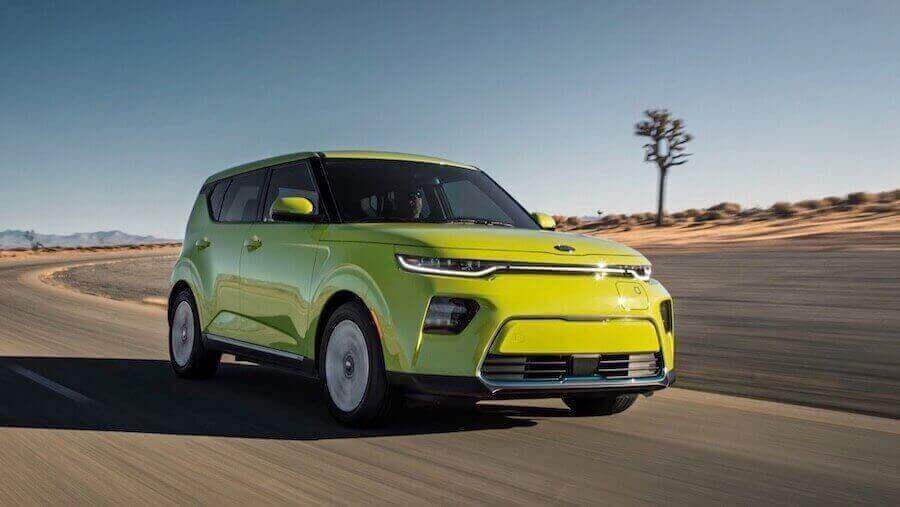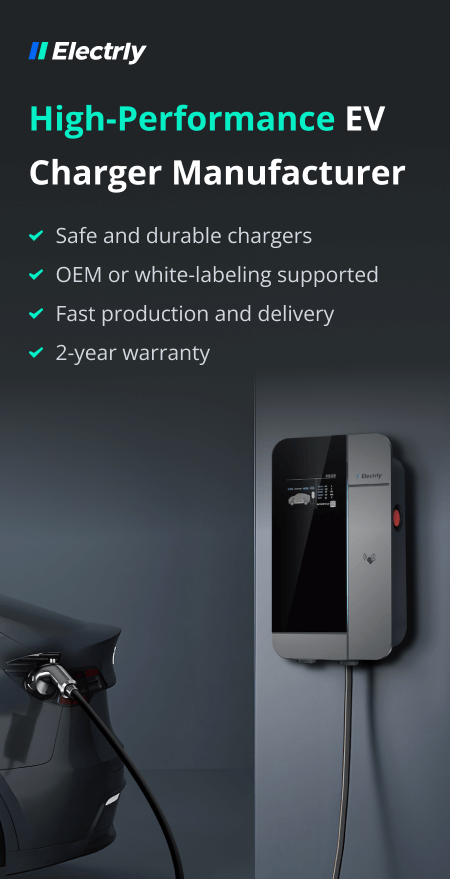Where you can get a fit-for-purpose Kia Soul EV charger for your car? This post shows you where and how to quickly find a reliable manufacturer and the requirements to consider when selecting the perfect Kia Soul EV charger.
Where you can get a fit-for-purpose Kia Soul EV charger for your car? This post shows you where and how to quickly find a reliable manufacturer and the requirements to consider when selecting the perfect Kia Soul EV charger.
Wondering where you can get a fit-for-purpose Kia Soul EV charger?
While the South Korean auto giant, Kia, has also joined the race to the biggest EV manufacturing finish line, their innovative design and user-utility rating have excelled. One of their innovative designs is the Kia Soul EV, which has received great acceptance in the EV industry as it has very beneficial users that have endeared it to so many EV users. However, the challenge of locating a suitable charging station remains unsolved for some of its users. This article shows you where and how to quickly find a reliable manufacturer and the requirements to consider when selecting the perfect Kia Soul EV charger.
I. Kia Soul EV Charging Stations

II. What Kia Soul Drivers Need to Know about EV Charging
After being overshadowed by other EVs in its category, the Kia Soul electric vehicle has been revamped with many beneficial features that have made it one of the best EVs today. With so many additional features and improved options, including a bigger battery capacity, sleek, aesthetically pleasing design, new equipment, and a well-connected system to shoot it past many other EVs in the market. This 280-mile range EV is powered by its 64kWh battery, which is enough for daily inner-city navigation without needing another charge.
Related EV Specifications: Kia e-Soul 39 kWh
Related EV Specifications: Kia e-Soul 64 kWh
III. Kia Soul EV Charging & Range
With its 64kWh battery, charging a Kia Soul EV depends on the onboard charger installed and the type of charger you choose to replenish the depleted charge. The Kia Soul EV has an onboard charger with a 7.2kW capacity, allowing it to add different ranges per hour of charging with different charger types. A level 1 charger with a 120V input and a 3kW power takes about 21 hours to fully charge the 64kWh battery, adding about a 13-mile range per hour to the battery. However, for a level 2 charger with a 240V and a power of 7kW, the charging time is about 9 hours, adding about a 32-mile range per hour. Additionally, a 100kW DC fast charger only takes 30 minutes to get the battery to 80%.
IV. How to Charge a Kia Soul EV?

To charge a Kia Soul EV, specific requirements must be charged with an AC or DC charger. The EV comes with a combined charging system (CCS) connector, which makes it possible to connect to both an AC and a DC charger. The CCS connector is equipped with a type 2 connector pin on the upper part for home and public AC charging. It also has a pin connector for DC fast charging on the lower part of the CCS. You can connect the Kia Soul EV to a charger using the CCS with its charging port located on the front of the EV close to the front grille. You can charge with a slow charger at home using the residential power supply grid or a public charging station. While charging the Kia Soul EV is often done with a level 1, 2, or level 3 charger, contactless and robotic charging is also common.
V. How Long Does it Take to Charge a Kia Soul EV?
Charging a Kia Soul EV with a level 1 charger at home takes about 21 hours of 3kW and 120V power supply. It is faster with a level 2 charger with a 22kW and 240V power supply and takes about 9 hours from 0 – 100%. The fastest charger is still a DC fast charger with a 100kW and 480V power supply, and it takes about 30 minutes to charge from 0 – 80%.
Related Article: EV Charging Time: How Long will it Take to Charge My Car?
VI. Pick the Right Charging Speed to Suit you
Picking the right charging speed for your Kia Soul EV depends on fulfilling specific criteria, including the battery capacity and local EV charging requirements.
The higher your battery capacity, the faster the charger is required, as you will need more power to quickly bring the battery to full capacity. Kia Soul EV’s battery is a 64kWh-capacity battery that can be considered high capacity and require a minimum of a level 2 charger to maximize its abilities.
Your local EV charging requirement can determine the factor in picking the right charging speed. For instance, choosing a level 1 charging speed for your Kia Soul where the local power grid supplies a minimum of 240V will only cause an incompatibility issue.
VII. How Much Does it Cost to Charge a Kia Soul EV?
The cost of charging a Kia Soul EV will vary for different charging stations and battery capacity, but home charging is often less expensive than with public charging stations. Other models of Kia Soul EV have various sizes of batteries and, as such, will take a different amount of energy to fully charge the batteries. Also, different charging stations measure different metrics for billing EV owners. Some use the amount of energy consumed to bill the EV owners, and others use the time taken to charge the batteries. Ultimately the average cost of charging a Kia Soul EV is between 70 cents per mile range.
VIII. How to Choose Your Right Kia Soul EV Charger?
Many factors determine the suitability of a charger for your Kia Soul EV, and failing to critically assess these criteria can lead to frustrations and the inability to get an optimum charge for your EV battery. The essential criteria often involve the location of use, the driving pattern, the battery size, your budget, and the purpose of purchasing the EV charger.

Location – The first consideration you need to evaluate is where you intend to drive your Kia Soul EV, as dismissing this can cause incompatibility issues. In places where the required charging connector is the CHAdeMO cable, buying a charger that requires a J1772 connector will only result in frustrations.
Drive pattern – This criterion is essential to help you ascertain the number of hours you can commit to charging your Kia Soul daily. If you drive long distances daily, a level 1 charger might not suffice since you’ll require a charger that can help you quickly refill your battery.
Battery size – High-capacity batteries often need more power delivered quickly. Hence a level 2 charger is usually recommended for these high-capacity batteries like the 64kWh battery installed with the Kia Soul EV.
Budget – The price of a charger and your budget has to align to get the right EV charger. Generally, the faster the charger, the higher the price, which means that level 3 chargers are the most expensive of the three chargers. Seeking a level 2 charger with a budget for a level 1 charger is unrealistic.
Purpose – Buying the right Kia Soul EV charger can be for home use or providing charging services to Kia Soul owners. Buying for home use can accommodate a level 1 charger, but as a charging service, buying a level 1 charger is not right as it will take longer to charge EVs, which can lead to negative consequences.
IX. Where to Buy the Quality Kia Soul EV Home Charger?
The places to buy quality Kia Soul EV home chargers are easy to find, but it doesn’t seem very easy for most EV owners to find.
Online search – A quick search in popular search engines like Google can quickly return millions of EV charger manufacturers from which you can purchase a quality EV home charger after a critical examination.
Online stores – The web is filled with online stores with different merchants, including EV manufacturers, carefully curated and categorized according to their products. This categorization makes it easy to quickly find a quality EV charger manufacturer.
Exhibitions and trade fairs – Chinese manufacturers also hold exhibitions yearly to showcase their products, including EV chargers. You can find quality EV home chargers from places like this, and you even have the advantage of assessing the features of many EV chargers before making your orders.
X. Electrly Advantages for Kia Soul Owners
- Top Quality – With a consistent commitment to quality manufacturing, Electrly ensures that the EV chargers from its factories meet international quality standards. Its commitments have been solidified by acquiring ISO 9001:2015 quality management systems certification.
- Qualification Certificates – International safety standards and certifications inspire confidence in the customers, which is one reason Electrly has acquired necessary international certifications, including UL, CE, EN, and ISO, to give its customers the highest confidence in its EV chargers.
- Affordable Price – Electrly’s prices are one of the most competitive prices in the industry. Its strategic location has opened opportunities for an abundance of expertise to them. This has equally lowered their production cost and selling price as well.
- Rich Experience – They have a long history spanning over three decades, providing the rich experience evident in their quality EV charger manufacturing.
- OCPP Compliant – Electrly is OCPP (Open Charge Point Protocol) compliant, which means their EV chargers can run every OCPP compliant software, which makes charging EVs easy and without stress.
- After-sales Guarantee – Their after-sales support is guaranteed with a dedicated, round-the-clock support team that promptly responds to customers’ inquiries.
Conclusion
In conclusion, the Kia Soul EV has excellent features that endeared it to many EV enthusiasts and owners. However, the usual challenges that plague finding a suitable EV charger for EV owners are also common with Kia Soul EV. Fortunately, the criteria highlighted in this article, including location, battery size, and drive patterns, will help you select the right EV charger for your Kia Soul EV. Ultimately, you’ll need a reliable EV charging supplier like Electrly with an affordable price and quality manufacturing to help you meet these requirements.

